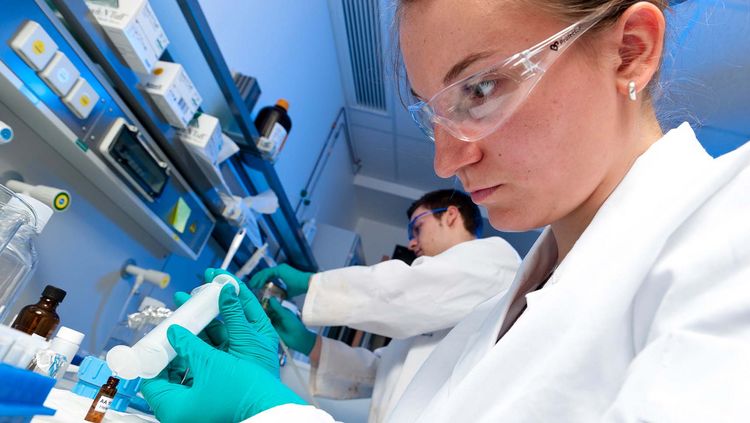How can organic matter dissolved in the ocean store carbon over thousands of years and maintain our climate in the process? To shed light on this question, marine scientists at the University of Oldenburg performed a laboratory experiment over several years.
The team of five researchers led by Dr. Helena Osterholz and Prof. Dr. Thorsten Dittmar of the Institute for Chemistry and Biology of the Marine Enviroment (ICBM) published its findings in the current issue of the prestigious journal "Nature Communications".
The ocean stores similar amounts of carbon in dissolved organic matter (abbreviated to DOM) as are present in the carbon dioxide (CO2) in the Earth's atmosphere. The highly complex mixture of various carbon-containing substances consists of the products of metabolism and decomposition of marine organisms such as algae. DOM forms the basis for the survival of marine bacteria, which during the degradation of these compounds release part of the carbon they contain into the atmosphere in the form of CO2.
However, a large proportion of the DOM remains in the seawater for several thousands of years, some fractions have even been found to reside in the water for up to 40,000 years. Consequently this so-called refractory DOM - also known as RDOM - functions as a huge, long-term carbon depot.
The question of whether RDOM is created through biological processes alone, and if so, of how it can resist bacterial decomposition for so long forms the basis of the publication. To answer these questions the researchers mixed pure, initially DOM-free seawater with a small amount of water from the North Sea, including its natural algae and bacterial assemblages. Taking water samples over a period of 1011 days, they were able to observe algal growth, DOM release and decomposition processes and perform detailed analysis applying ultra-high resolution chemical methods.
The researchers examined whether the compounds produced in the laboratory were of the same molecular composition and present at similar concentrations as those in the deep sea across the globe. The result: the molecules were for the most part the same as those found in marine RDOM, but were present in very different concentrations. The ratios of the different DOM components in the laboratory were not identical to that of oceanic RDOM.
In complex calculations the scientists determined the percentage of RDOM present in all the organic material produced in the experiment; it constituted 0.2-0.4 percent of the entire fixed carbon. "That amount is pretty close to previous theoretical estimates of approximately 0.6 percent. So in this experiment we were able to experimentally show what has long been suspected: biological processes suffice to keep the amount of carbon stored in the ocean at stable levels," Osterholz explains.
A fragile balance that Osterholz says is highly relevant for our climate: "In the history of our planet even small variations in the concentration of oceanic dissolved organic matter have probably led to global ice ages or interglacial periods." After more than four years of incubation, the scientists will soon take the last water samples from their large containers. The remaining water will be submitted to a new experiment: the scientists will simulate the processes that take place on the light-flooded sea surface using UV light.

